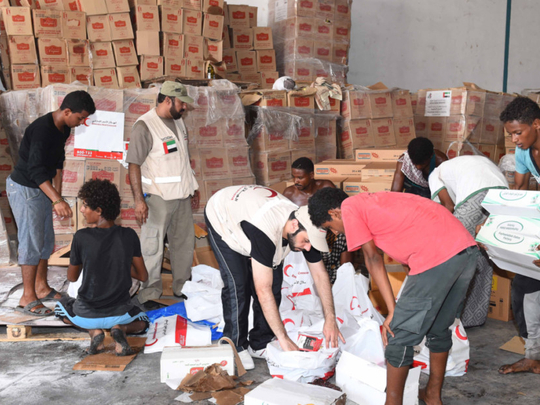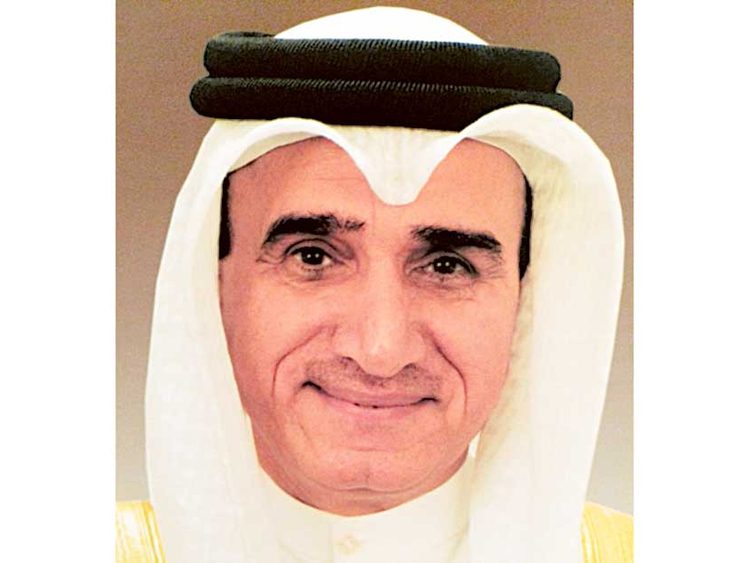
Abu Dhabi: Officials with Emirates Red Crescent (ERC) confirmed they will continue their humanitarian mission to help victims caught in conflict-ridden Yemen, even when the military actions stop.
“Our campaign in Yemen to help the Yemeni people will continue even when the military action ends,” said Dr Mohammad Atiq Al Falahi, secretary-general of ERC.
The comments came in light of Saudi Foreign Minister Adel Al Jubeir’s announcement earlier in the week that he could sees the Yemen war was near its end.
Dr Al Falahi explained ERC’s efforts would actually expand after the military mission had stopped. “There are parts of Yemen which we have not been able to reach because of the military operation. After the military action stops, we are going to try and reach people in those areas, the rural areas, mountains and villages.”
According to the UAE Ministry of International Cooperation and Development, an estimated 21.1 million people in Yemen require some kind of humanitarian assistance which is around 80 per cent of the total population.
It is estimated that around 20.4 million people in Yemen have little access to water and sanitation assistance, 15.2 million are in need of basic health care and 12.3 million are food-insecure, while 2.9 million children have no access to education.
Dr Al Falahi stressed that the ERC relief campaign in Yemen was concentrating on health, education and infrastructure. “We are going to continue this campaign until our mission is achieved.”
As well as ERC’s continuous efforts to distribute food to Yemenis people on a daily basis, the organisation is currently renovating 10 schools and has sent 18,322 tonnes of maintenance equipment to the country.
The UAE was ranked first globally as the largest donor to the humanitarian crisis in Yemen during 2015, representing 31 per cent of the total aid provided by countries around the world.
According to Dr Sulaiman Al Jasem, former vice-president of Zayed University, UAE’s efforts are not surprising. “The UAE has always been in places where the people need our help. Take Iraq, Afghanistan, Syria, Somalia and others. Our people have always been there to help in any way they can.”
“Of course we will be in Yemen helping their people, we are part of their history and we will give their people our full support,” he added.
Al Jasem praised UAE’s leaders for their speedy response to the humanitarian crisis in Yemen and pointed out the military success was allowing the aid campaign to be expanded in the country.
“Initiatives were taken by our government to send aid to the Yemenis from day one. We faced some challenges at times in getting this aid to them because of the Al Houthis but since the army has taken control of Aden and other critical areas the situation is changing,” he said.
“We are building schools, shelters, providing electricity, food and a lot more,” he added.
Between April and July this year the UAE provided humanitarian aid worth Dh744 million ($202 million), almost half of the aid pledged by other countries.













